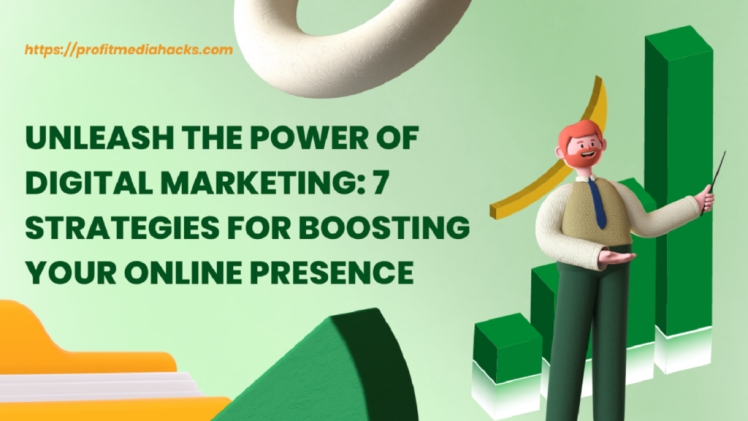Introduction:
In the rapidly evolving landscape of business, digital marketing has emerged as a game-changer, revolutionizing the way brands connect with their audiences. In the digital age, where online presence is crucial, businesses must leverage the power of digital marketing to stay competitive and relevant. This article explores the dynamic world of digital marketing, shedding light on key strategies that can propel businesses to success in the ever-expanding online realm.
Table of Contents
Understanding the Digital Landscape: Digital marketing encompasses a vast array of online channels and platforms, including social media, search engines, email, content marketing, and more. To navigate this landscape effectively, businesses must first understand their target audience, their online behavior, and the platforms they frequent. A comprehensive understanding sets the foundation for a strategic and targeted digital marketing approach.
Search Engine Optimization (SEO): SEO remains a cornerstone of digital marketing, influencing a brand’s visibility on search engines. Optimizing website content, using relevant keywords, and adhering to SEO best practices improve a website’s ranking in search results. Businesses that invest in SEO not only enhance their online presence but also increase the likelihood of attracting organic traffic.
Compelling Content Marketing: Content is king in the digital realm. High-quality, relevant content serves as a magnet for online audiences. Whether through blog posts, videos, infographics, or social media updates, businesses can showcase their expertise, engage their audience, and build brand authority. An effective content marketing strategy involves creating valuable, shareable content that resonates with the target audience.
Social Media Engagement: Social media platforms have become virtual marketplaces where businesses can directly connect with their audience. Active social media engagement allows brands to humanize their image, build relationships, and stay top-of-mind. Each social media platform has its unique audience and features, so businesses must tailor their approach to suit the platform and their target demographic.
Email Marketing Campaigns: Email marketing remains a powerful tool for building and nurturing customer relationships. Personalized and targeted email campaigns can deliver relevant content, promotions, and updates directly to the inbox of potential and existing customers. Effective email marketing strategies include segmentation, automation, and compelling calls-to-action.
Pay-Per-Click (PPC) Advertising: PPC advertising enables businesses to drive targeted traffic to their websites by placing ads on search engine result pages or other online platforms. With PPC, businesses only pay when users click on their ads. This targeted approach allows for budget control and precise targeting, making it an effective strategy for generating leads and conversions.
Data Analytics and Insights: The beauty of digital marketing lies in its measurability. Businesses can leverage data analytics tools to gather insights into user behavior, campaign performance, and overall online presence. Analyzing this data allows businesses to refine their strategies, allocate resources effectively, and make informed decisions for future campaigns.
Mobile Optimization: With the increasing use of smartphones, mobile optimization is no longer optional. Websites and digital content must be optimized for mobile devices to provide a seamless user experience. Mobile-friendly websites not only improve user satisfaction but also positively impact search engine rankings, as Google prioritizes mobile-friendly content.
Influencer Marketing: Collaborating with influencers who have a significant following in a particular niche can amplify a brand’s reach. Influencers can create authentic content that resonates with their audience, providing businesses with an effective way to tap into new markets and build credibility.
Continuous Adaptation and Innovation: The digital landscape is in a constant state of evolution. To stay ahead, businesses must embrace a culture of continuous adaptation and innovation. This involves staying abreast of industry trends, experimenting with new tools and technologies, and being open to adjusting strategies based on changing consumer behaviors and preferences.
Conclusion:
Digital marketing has transformed the way businesses connect with their audience, offering unprecedented opportunities for reach, engagement, and conversion. By embracing the diverse strategies within the digital marketing arsenal, businesses can not only establish a robust online presence but also foster meaningful connections with their target audience. In a world where the digital realm continues to expand, the savvy use of digital marketing remains a key driver for success in the modern business landscape.

